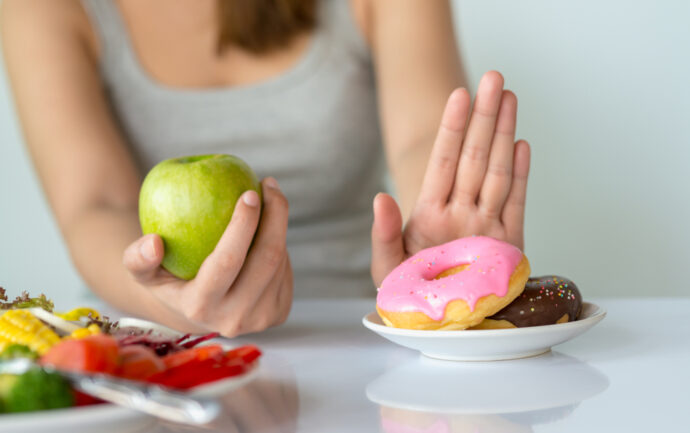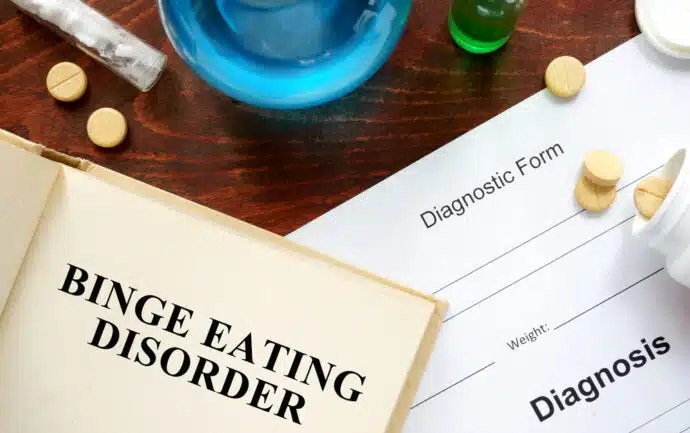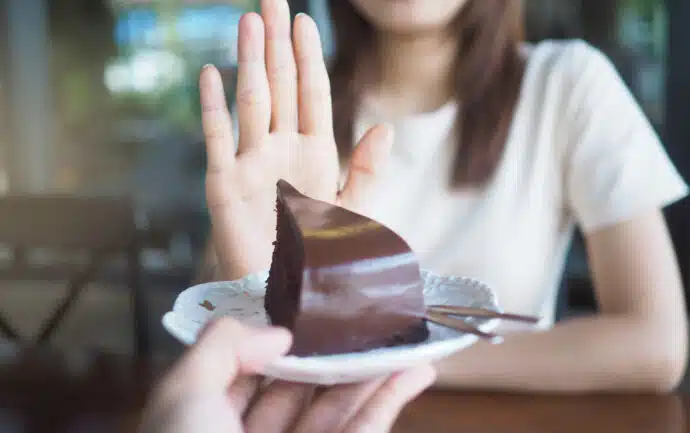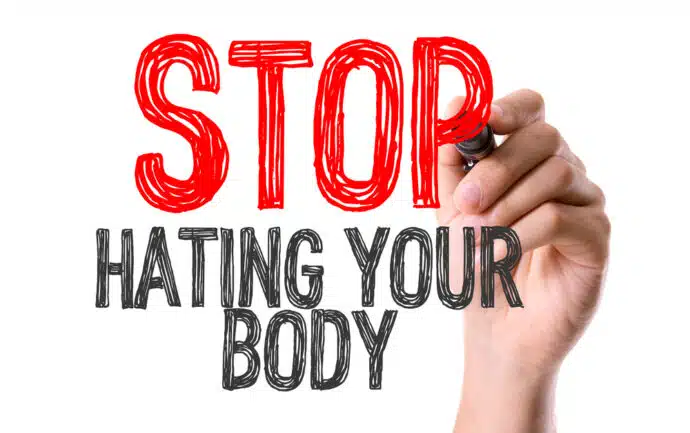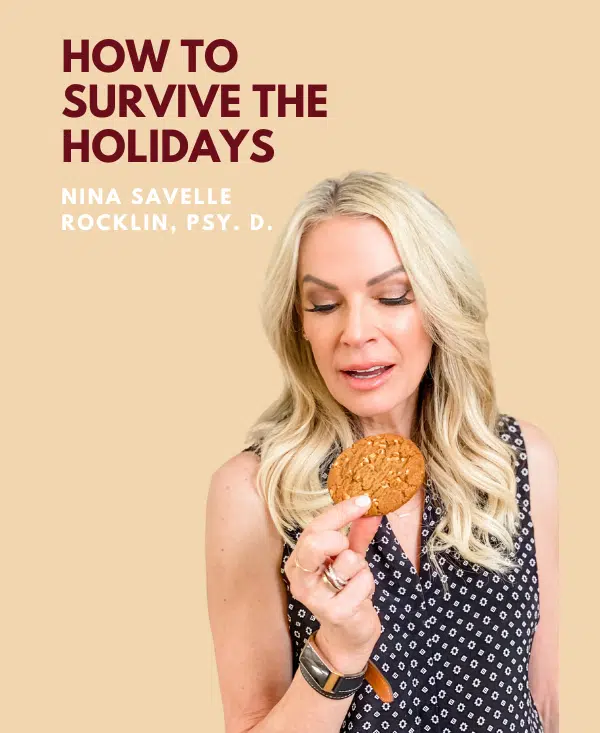Table of Contents
- #1 – Binge eating is about FOOD.
- #2 – All I need is an excellent weight-loss plan!
- #3 – I wish I had willpower.
- #4 – I can NEVER overcome it.
- # -5 You can never have binge foods in the house
- #6 – Overeating and bingeing are the same.
- #7 – People who binge eat are overweight.
- #8 – Binge eating is a “gals” problem.
- FAQs
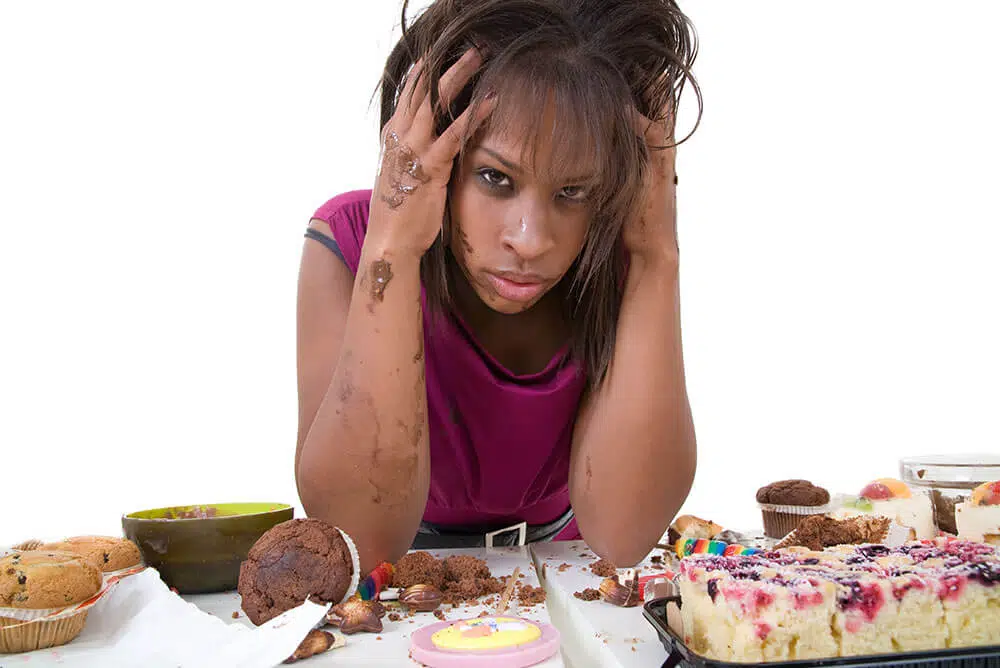
Did you know that you don't have to avoid your favorite food to get over binge eating?
Many of us have strong beliefs about binge eating that are actually myths. Unfortunately, these myths may be the very limiting beliefs holding you back from becoming binge free.
In this blog, I'll debunk some common myths about binge eating.
Tell me in the comments which of these myths have you believed 😉
Let's begin!
#1 – Binge eating is about FOOD.
Your favorite ice cream, snacks, or brownies are not the problem. Certain foods help us deal with certain emotions but we’re not triggered by food. We’re triggered by a situation and bingeing is a solution to the problem, not “the” problem. Bingeing is a way of soothing— a way to comfort ourselves, numb, express or symbolically fill a void. Bingeing is a coping strategy. The problem is, we often are so adept at using food to cope, we often don't even know we're triggered. We think it's about food, but the problem lies much deeper. And it's often hidden from us.
#2 – All I need is an excellent weight-loss plan!
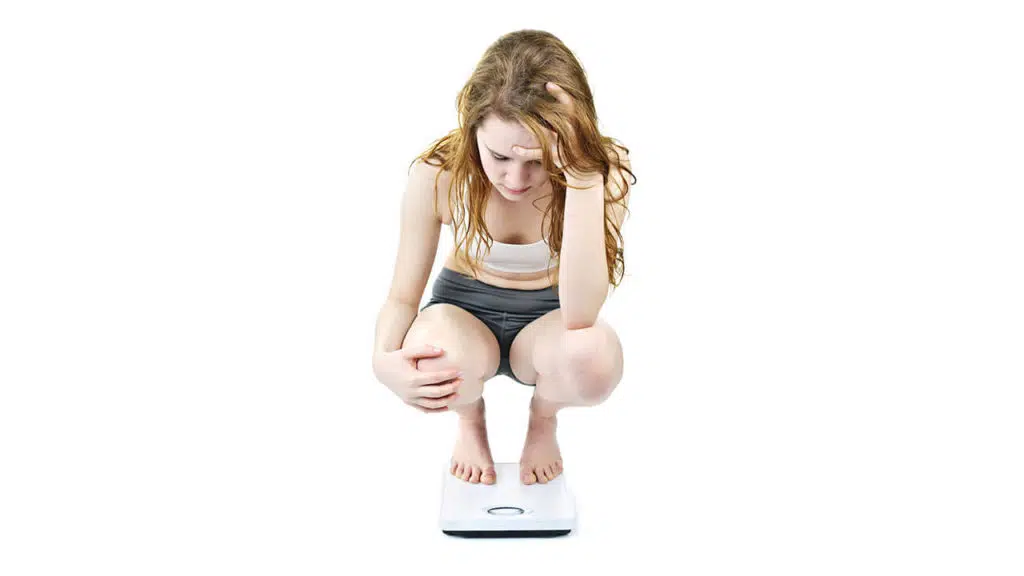
Restricting calories, avoiding particular food, or skipping meals might seem like a reasonable way to lose weight or stop bingeing. You won't binge it if you don't see it, right? But the truth is that the more we restrict, the more we binge. Weight-loss diets induce a sense of deprivation. The anticipation of deprivation, knowing that you won't be able to eat your favorite foods, compels you to want them even more. This is why diets don’t work.
#3 – I wish I had willpower.
You might blame your lack of control on willpower but bingeing is not about willpower or control. If you’ve been on several weight loss diets, you likely have more willpower than you give yourself credit for. But, willpower has very little to do with binge eating because the very roots of bingeing have nothing to do with food.
#4 – I can NEVER overcome it.
Many people believe that they’re going to have to struggle with food forever. “I’ll be dealing with this for the rest of my life,” they tell me. That’s absolutely not the case. Remember that binge eating is comparable to a weed and a root. If you dig out a root, the weed is gone for good. Once you get to the root issue of why you’re turning to food, the bingeing problem is gone for good. So, there is always hope.
# -5 You can never have binge foods in the house
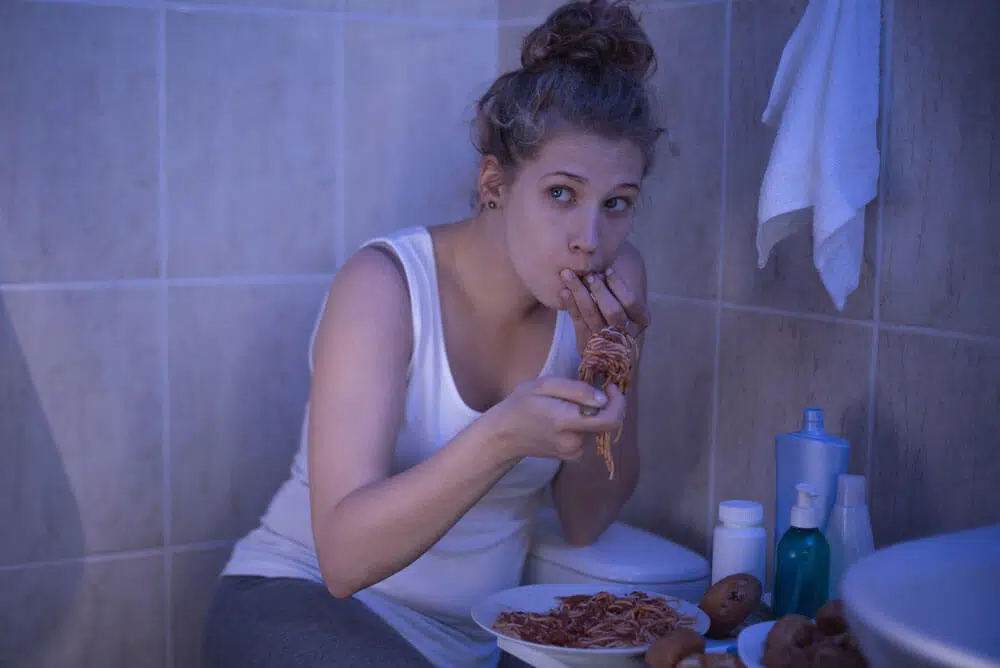
One of my private clients couldn't keep Oreos in the house without eating all of them. After working together, she realized she'd completely forgotten she had Oreos in her pantry.
Binge eating is not about food. But, if you classify some food as “good” and some as “bad” then you create deprivation. And, the experience of anticipation of deprivation makes you want those forbidden foods even more. On the other hand, when we allow ourselves to eat all food, we eliminate deprivation and often end up eating less.
#6 – Overeating and bingeing are the same.
Most of us occasionally overeat, especially during holidays, when excessive eating is part of the celebration. Think about Thanksgiving, when overeating is expected and encouraged. Overeating is about food and it simply means eating too much. Binge eating, in contrast, involves eating a large quantity of food in a short amount of time, often so much that it causes physical pain. Bingeing also involves remorse, guilt, and shame about the behavior. Bingeing makes you feel terrible about yourself.
#7 – People who binge eat are overweight.
People who struggle with binge eating are all shapes, sizes, ages, and genders. Anyone can develop binge eating because it’s about feelings. Some people who binge are overweight and others are not.
#8 – Binge eating is a “gals” problem.
As per Wade et al., 2011, almost 30 million men and women suffer from binge eating in the United States. Although it seems common among women, the truth is that the reports and stats about men are under-reported. Binge eating can happen to teens, men, women, and non-binary people.
Binge Eating Disorder is not about food, willpower, or diets; rather, it is a coping mechanism that helps and hurts you. So, which of the above have been your dominant myths? Leave a comment!
There's a lot more to binge eating. If you're interested to know more about it, read my book — “The Binge Cure: 7 Steps to Outsmart Emotional Eating” available worldwide on Amazon in paperback, Kindle, and audiobook formats. It’s filled with helpful strategies for you to banish binge eating and create a life of freedom, peace with food, and self-love, so you can live your best life. Follow me on Instagram to see bite-sized daily updates about binge eating.
FAQs
Should I take medication for binge eating?
Bingeing is not about WHAT you're eating instead, it's about what’s eating “AT” you. Treatment for binge eating means identifying the internal triggers, learning to express emotions and conflicts, and cultivating new ways of responding to yourself. When you do that, you naturally get to your healthiest weight without counting a single calorie, carb, or fat gram.
Why am I binge eating if it's not about food or willpower?
If you're turning to food, you're turning AWAY from something else — something painful or upsetting or difficult in some other way. It could be your childhood trauma, an unpleasant phase of your life, a bad relationship or a toxic workplace. Maybe you're eating food to sedate yourself or using it to convert emotional pain into physical pain. Take your binge eating as a sign to resolve problems that stress and constrain you.
If diets or eliminating food groups is not the solution, where should I start?
Follow this 3-step process:
Step 1: Begin by identifying your triggers. You can also download my food-mood formula e-book for FREE and discover the HIDDEN reasons you're turning to food.
Step 2: Express your emotions. The only way to get rid of feelings is to actually feel them. Instead of trying to “sit” in your emotions, learn how to express them in words. Journal, talk with a friend, join a support group, and find ways to work through your feelings,
Step 3: Respond to yourself in a different way. Use words and healthy attitudes to soothe yourself instead of food.
It might be challenging at first, but practice really does make progress.
Get 'The Binge Cure: 7 Steps to Outsmart Emotional Eating'
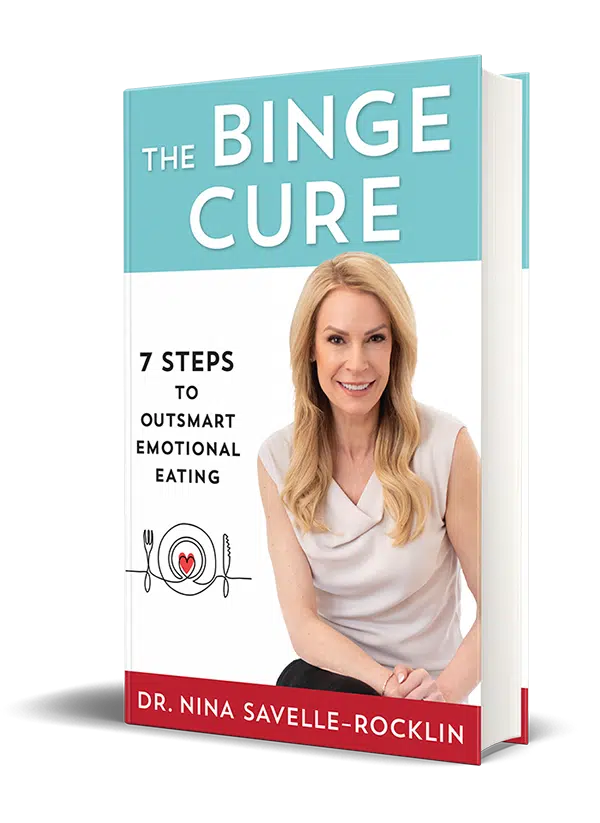
The Author

Dr. Nina Savelle-Rocklin is a psychoanalyst, author and radio host specializing in binge eating disorder. She is the author of The Binge Cure: 7 Steps to Outsmart Emotional Eating and Food for Thought: Perspectives on Eating Disorders, and co-editor of Beyond the Primal Addiction. She hosts The Dr. Nina Show radio program on LA Talk Radio.
Related Blogs
